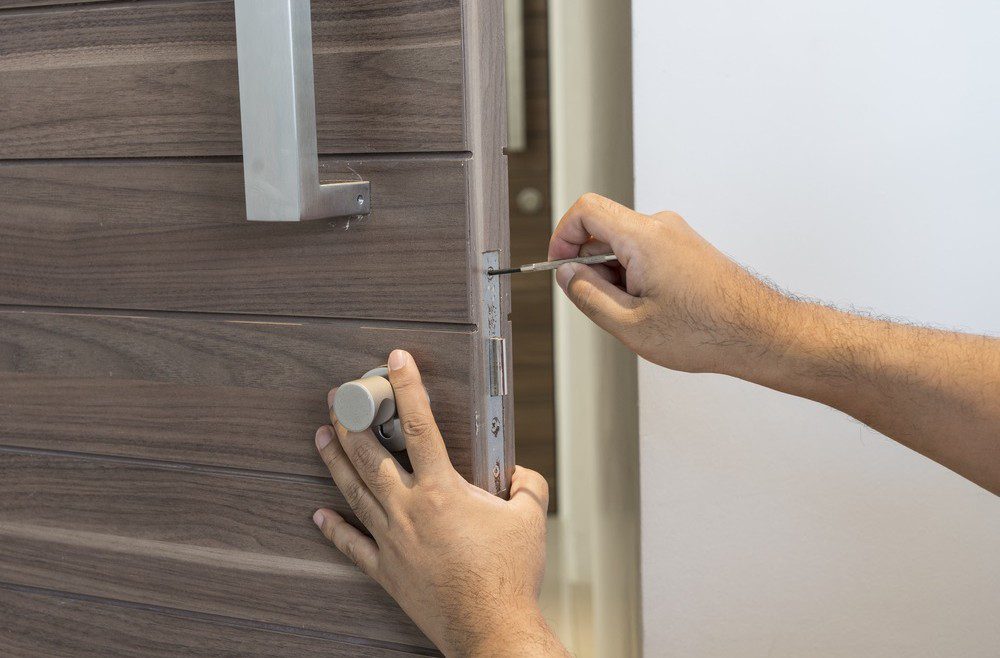Do You Need a Local Locksmith In New Orleans, LA? Call Royal Locksmith Now. License: F-2457
Do You Need a Local Locksmith In New Orleans, LA? Call Royal Locksmith Now. License: F-2457


Changing a commercial door lock might sound intimidating, but with the right guidance and tools, it's a task you can handle yourself. Whether you're looking to upgrade security or replace a faulty lock, this guide will help you through the process seamlessly. How to Change a Commercial Door Lock? let's dive in:
Before jumping into the how-to, let's briefly discuss why you might need to change a commercial door lock. Understanding the reasons can help you determine if it's the right step for your business.
Tools You'll Need
To change a commercial door lock, gather the following tools:
Nothing is more frustrating than coming home after a long day, only to find…
Locks are the backbone of security for our homes and businesses. We trust them…
Doors and their locks are the primary barrier between your personal space and the…
It’s a common scene: you're juggling grocery bags, a gym bag, and maybe even…
If you own a car with a transponder key or a keyless entry system,…
Step-by-Step Guide
1. Remove the Old Lock
Start by removing the existing lock. This typically involves unscrewing the lock from the door. Here's a more detailed breakdown:
2. Measure the Door
Before installing the new lock, measure the door to ensure the new lock will fit properly. Measure the thickness of the door and the backset (the distance from the edge of the door to the center of the lock).
3. Prepare the New Lock
Unpack your new lock and check that you have all the necessary components. Familiarize yourself with the instructions provided by the manufacturer. Most commercial locks come with:
4. Install the New Lock
Now it's time to install the new lock. Follow these steps:
5. Secure Everything
Once the new lock is installed and tested, tighten all screws securely. Double-check that the lock is stable and aligned correctly. If necessary, adjust the strike plate to ensure the lock bolt engages properly.
Enhancing your commercial door lock installation with these advanced tips can provide added security and longevity to your lock system.
To keep your new commercial lock in top condition:
Common Mistakes to Avoid
When changing a commercial door lock, avoid these common mistakes to ensure a successful installation:
Changing out a commercial door lock involves removing the old lock, measuring the door, preparing the new lock, installing it, and securing everything. Our detailed guide above provides step-by-step instructions.
Yes, with the right tools and instructions, you can change a commercial door lock yourself. It typically takes about 30 minutes to an hour, depending on your experience and the type of lock.
Yes, commercial locks can be rekeyed. This process involves altering the lock mechanism so that it can be operated by a new key. It's a cost-effective way to enhance security without replacing the entire lock.
The cost of changing a commercial lock varies based on the type of lock and whether you hire a professional locksmith. On average, you might spend between $100 and $250, including the cost of the lock and labor.
Yes, commercial door locks are typically more robust and secure compared to residential locks. They are designed to withstand higher traffic and offer enhanced security features suitable for business environments.
Locksmiths change locks by first removing the existing lock, then installing a new one or rekeying the existing lock. They have specialized tools and expertise to ensure the lock is installed correctly and operates smoothly.
Don't let security worries lock down your business potential. Whether you're upgrading old locks, dealing with a lockout, or setting up a master key system, Royal Locksmith is here to ensure your business stays safe and sound. Request a service now or give us a call.
If you have ever been locked out of an older car, you may remember how simple it once was to get back in. Today, that same situation feels very different. Newer cars are far more…
Read More
Most people do not call a locksmith on a good day. The call usually comes after something has already gone…
Read More
Lockouts never happen when it is convenient. It is usually late at night, early in the morning, or right when…
Read More
If your car uses a smart key, key fob, or push button start, it is reasonable to wonder who you…
Read More